
Strengthening the immune system: The role of vitamins and minerals
In a world full of pathogens and stress factors, a strong immune system is our most important line of defense. The immune system consists of a complex

Share with:

Creatine is one of the most popular dietary supplements for training. Those who participate in sports, bodybuilding or regular fitness programs experience many great benefits from consuming creatine.
Creatine is an amino acid derivative that we consume in red meat and seafood. Our body is also able to synthesize creatine in the kidneys and liver from the amino acids glycine and arginine. Our body has creatine stores in which creatine is stored until it is needed. 95% of creatine is stored in the skeletal muscles, while the remaining 5% is stored in the brain, liver, kidneys and testes.
Women's creatine stores are slightly different from men's due to differences in body size and natural muscle mass, but the exact ratios are unknown.
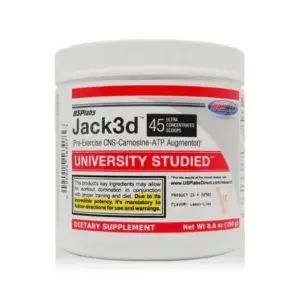
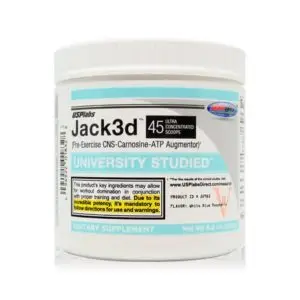
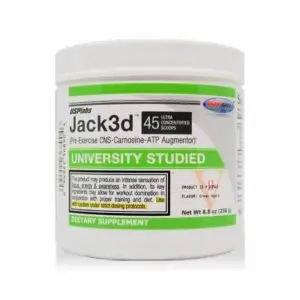
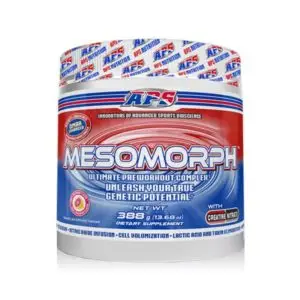
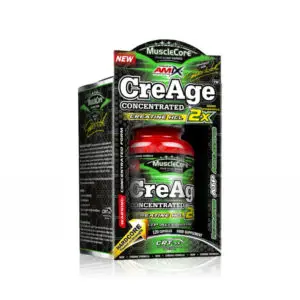

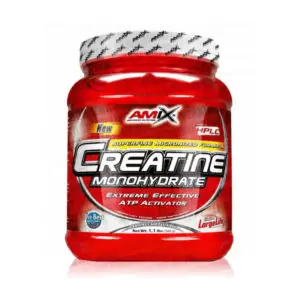
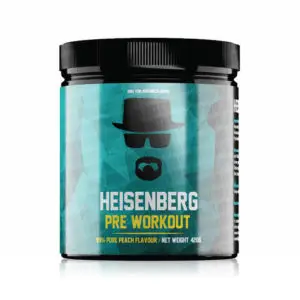
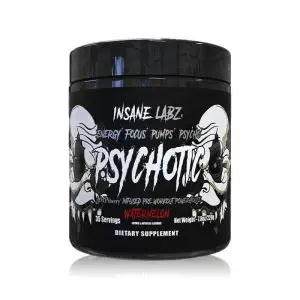
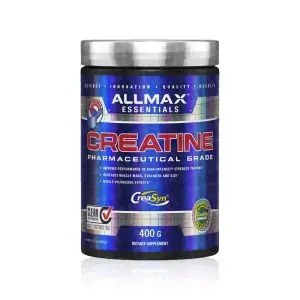
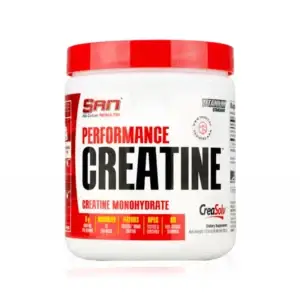

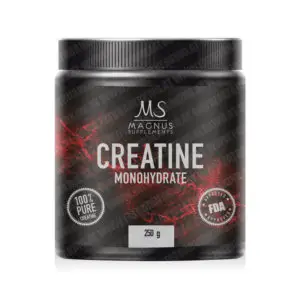
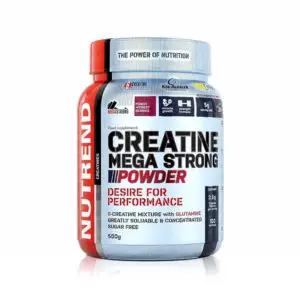
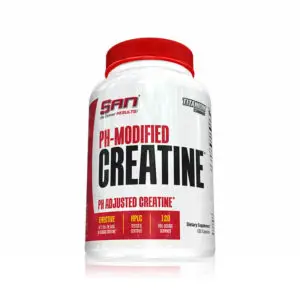
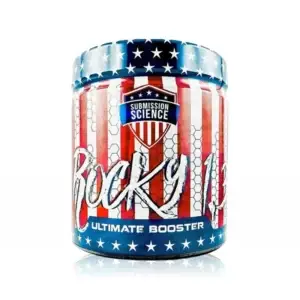
Sporting performance and muscle strength
The main reason why people supplement creatine is to improve their athletic performance and increase muscle strength.
ATP (adenosine triphosphate) is the energy source that muscles use to contract during exercise. After being used for muscle contraction, ATP releases a phosphate and becomes ADP (adenosine diphosphate). Since muscles require a continuous supply of ATP for repetitive muscle contractions, the body can re-synthesize ATP by combining stored creatine with a phosphoryl group. During explosive, high-intensity exercise, creatine stores can become depleted, and this is where creatine supplementation comes in handy, as it saturates the body's creatine stores.
Several studies show that creatine supplementation improves athletic performance and increases muscle strength. Creatine supplementation can improve exercise tolerance, increase maximum effort, improve repetition performance, improve endurance and increase work capacity
Muscle mass and body composition
Research shows promising evidence that supplementing with creatine has the potential to increase muscle mass by improving muscle strength and performance.
The increase in muscle mass is greater in men than in women due to hormonal differences.
If you are concerned that creatine could lead to weight gain, research shows that creatine does not cause weight gain.
When you start supplementing creatine, you should begin with a loading phase. The loading phase consists of taking 5 grams (or 0.03 g/kg body weight) four times a day for about 5 to 7 days.
After you have completed the loading phase, your muscles will be saturated and you can continue to take a maintenance dose of 5 grams per day (or 0.03 g/kg body weight). You can calculate how much creatine you need to take based on your body weight here: Creatine Calculator.
Research on this topic is very limited, as only a handful of studies have been completed.
One study showed that supplementing with creatine immediately before and after resistance training resulted in similar gains in muscle strength and muscle mass after eight months of supplementation. However, when they compared the results with those of the placebo group, they found that only post-workout creatine supplementation increased lean body tissue mass and leg press strength.
Another study found that creatine supplementation after exercise led to better results in older adults, but it did not compare creatine supplementation with a placebo.
Most study results have limitations because their participant groups are very small. The most significant completed study had 39 older adult participants who supplemented creatine and performed resistance exercise 3 days a week for 32 weeks.
They divided the participants into three groups: pre-workout creatine supplementation, post-workout creatine supplementation and a placebo group that took the placebo before and after training. Both the pre- and post-workout creatine supplement group had similar strength gains that were greater than the placebo group. However, the group that supplemented creatine post-workout experienced a more significant increase in lean tissue. However, there were no differences in lean tissue gains between the pre-workout supplementation group and the placebo group.
The researchers concluded that the post-workout supplementation group experienced more significant grains because exercise increases blood flow to the skeletal muscles, which increases creatine transport into the muscles. Another study found similar results, as post-workout creatine supplementation provided better results for recreational bodybuilders.
The most conclusive evidence suggests that post-workout supplementation is the best time to take creatine. However, the best time has not been precisely determined and much more research needs to be done. Most studies have only found that post-workout supplementation increased lean mass, and there is a lack of research on the timing of creatine in relation to increasing strength or athletic performance.
As mentioned above, some researchers have concluded that the reason post-workout creatine supplementation caused greater effects was due to increased blood flow to muscle tissue after exercise, which increased the rate of creatine transport. Others have agreed that this could be the reason, but it is simply a theory that has not been studied.
The latest research from 2022 suggests that the influence of timing on creatine supplementation may depend on the timing of creatine supplementation in combination with carbohydrate consumption. Consuming creatine in combination with carbohydrates increases creatine stores for a short duration. As this has not been assessed in previous studies, the results of post-workout supplementation with creatine are considered weaker.
Due to the limited number of studies, which also had many limitations and did not take all variables into account, it is very difficult to conclude the best timing for creatine supplementation. Research shows that the timing of creatine supplementation, whether pre- or post-workout, provides similar results that are close enough to make no difference in the overall effect.
















When is the best time to take creatine?
The best time to take creatine has not yet been determined. We know that both pre- and post-workout supplementation with creatine provides similar results, but most studies had too many limitations to be conclusive. More research needs to be done.
Is creatine better in the morning or in the evening?
You can take your creatine at any time in the morning or evening. Research has not determined the optimal time to take creatine. You can take it whenever it is more convenient for you.
Does it matter what time of day you take creatine?
It doesn't matter what time of day you take creatine. No research guarantees the best time of day to take creatine for results. If your muscles are saturated with creatine, you will experience results no matter what time you take creatine.
Should I take creatine on a rest day?
Yes, you should take creatine on a rest day to maintain your creatine stores.
Is it okay to take creatine on an empty stomach?
You should avoid taking creatine on an empty stomach. It can cause stomach cramps. You may want to take your creatine supplements in combination with a carbohydrate as this will increase the capacity of your creatine stores.
Share with:
Related articles

In a world full of pathogens and stress factors, a strong immune system is our most important line of defense. The immune system consists of a complex

Essential amino acids (EAAs), as opposed to the more familiar branched-chain amino acids (BCAAs), provide a more complete profile of required nutrients, which is what
About
FATBURNERKING


© copyright 2018-2025 Fatburnerking.at
| Cookie | Duration | Description |
|---|---|---|
| cookielawinfo-checkbox-advertisement | 1 year | This cookie is set by the GDPR Cookie Consent Plugin and is used to record the user's consent for the cookies in the "Advertising" category. |
| cookielawinfo-checkbox-analytics | 11 months | This cookie is set by GDPR Cookie. The cookie is used to store user consent for cookies in the "Analytics" category. |
| cookielawinfo-checkbox-functional | 11 months | The cookie is set based on the consent of the GDPR cookies to record the user's consent for cookies in the "Functional" category. |
| cookielawinfo-checkbox-necessary | 11 months | This cookie is set by GDPR Cookie. Cookies are used to store the user's consent to the storage of cookies in the "Necessary" category. |
| cookielawinfo-checkbox-others | 11 months | This cookie is set by GDPR Cookie. The cookie is used to store the user's consent for cookies in the "Other" category. |
| cookielawinfo-checkbox-performance | 11 months | This cookie is set by GDPR Cookie. The cookie is used to store user consent for cookies in the "Performance" category. |
| CookieLawInfoConsent | 1 year | Records the default button status of the corresponding category and the status of CCPA. It only works in coordination with the primary cookie. |
| elementor | never | This cookie is used by the website's WordPress theme. It allows the website owner to implement or change the content of the website in real time. |
| viewed_cookie_policy | 11 months | The cookie is set by the GDPR cookie and is used to store whether the user has consented to the use of cookies or not. It does not store any personal data. |
| Cookie | Duration | Description |
|---|---|---|
| ssupp.vid | 6 months | Cookie set by Smartsupp to record the visitor ID. |
| ssupp.visits | 6 months | Cookie set by Smartsupp to record the number of previous visits, necessary to track automatic messages. |
| Cookie | Duration | Description |
|---|---|---|
| _ga | 2 years | The _ga cookie installed by Google Analytics calculates visitor, session and campaign data and also tracks website usage for the website analytics report. The cookie stores information anonymously and assigns a randomly generated number to identify unique visitors. |
| _gat_gtag_UA_179465762_1 | 1 minute | Set by Google to distinguish users. |
| _gid | 1 day | The _gid cookie installed by Google Analytics stores information about how visitors use a website and at the same time creates an analytics report about the website's performance. Some of the data collected includes the number of visitors, their source and the pages they visit anonymously. |
| tk_ai | 5 years | JetPack sets this cookie to store a randomly generated anonymous ID that is only used in the administration area and for general analytics tracking. |
| tk_lr | 1 year | The tk_lr is a referral cookie set by the JetPack plug-in on websites using WooCommerce that analyses referral behaviour for Jetpack. |
| tk_or | 5 years | The tk_or is a referral cookie set by the JetPack plug-in on websites using WooCommerce that analyses referral behaviour for Jetpack. |
| tk_qs | 30 minutes | JetPack sets this cookie to store a randomly generated anonymous ID that is only used in the administration area and for general analytics tracking. |
| tk_r3d | 3 days | JetPack installs this cookie to collect internal metrics for user activity to improve the user experience. |
| tk_tc | Session | JetPack sets this cookie to record details of how users use the website. |
| Cookie | Duration | Description |
|---|---|---|
| _fbp | 3 months | This cookie is set by Facebook to display ads after visiting the website, either on Facebook or on a digital platform powered by Facebook Ads. |
| fr | 3 months | Facebook sets this cookie to display relevant ads to users by tracking user behaviour on the web, on websites with Facebook Pixel or Facebook Social Plug-in. |
| Cookie | Duration | Description |
|---|---|---|
| cookies.js | Session | No description available. |
| weglot_wp_rocket_cache | Session | No description |